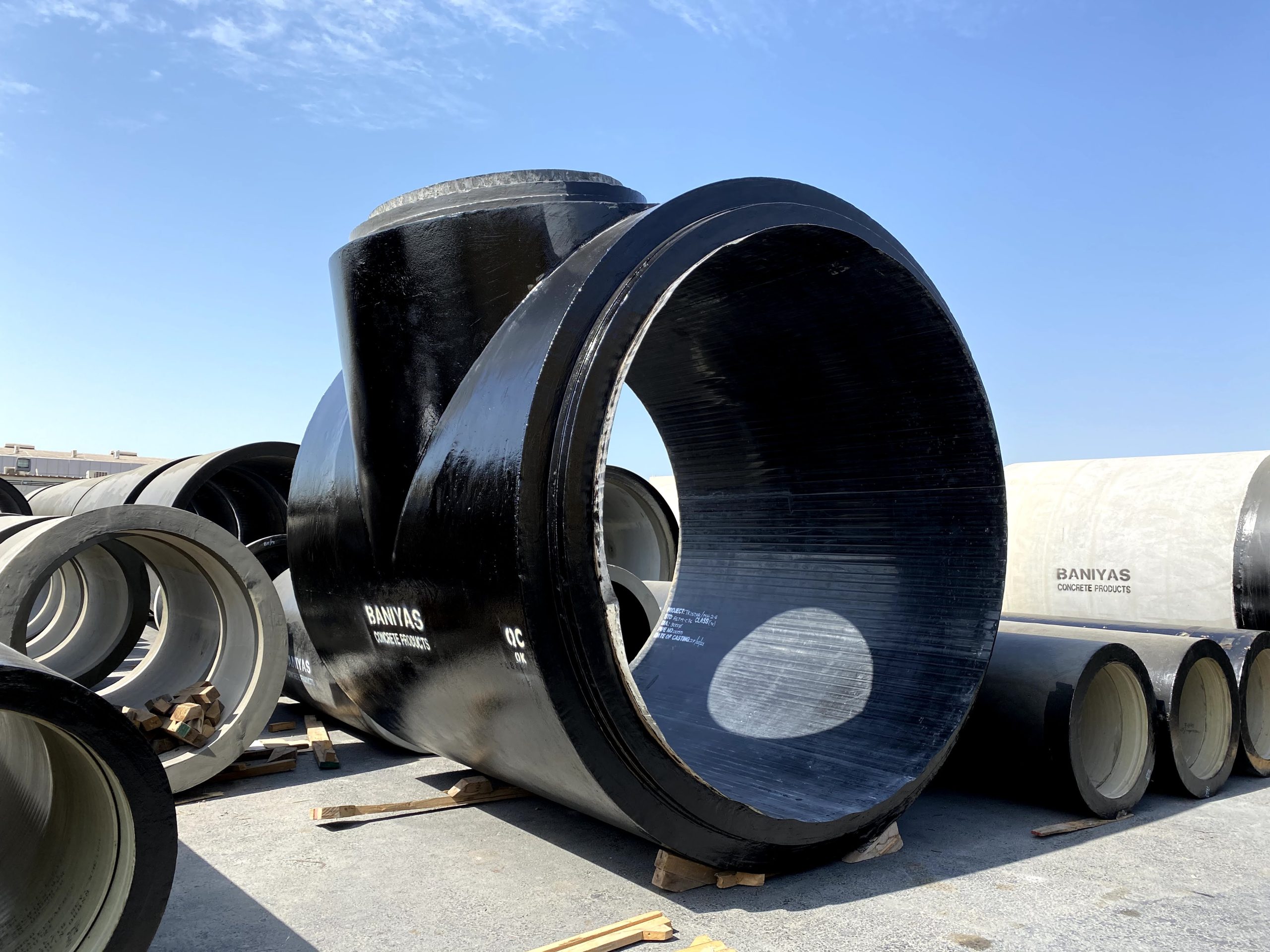Reinforced Concrete Pipe
Reinforced Concrete Pipe (RCP) is a type of pipe commonly used in various construction applications, particularly in water and wastewater systems. Here is a brief description of reinforced concrete pipe, its benefits, and its uses: Description: Reinforced Concrete Pipe (RCP) is a cylindrical-shaped pipe made from a combination of concrete and reinforcing steel. The concrete provides structural strength and durability, while the reinforcing steel, typically in the form of bars or wire cage, enhances the pipe's ability to withstand tensile and flexural stresses. Reinforced Concrete Jacking Pipes, Corrugated HDPE and composite GRP pipe with concrete surround are also a specific type of pipe used in trenchless construction methods, particularly in the process of pipe jacking or micro-tunneling. These pipes are designed to withstand the forces associated with being pushed or pulled through the ground during the installation of underground infrastructure.
Benefits of Reinforced Concrete Pipe:
Strength and Durability: RCP is known for its high compressive strength, making it capable of withstanding heavy loads and external pressures. This durability ensures a longer service life.
Resistance to Corrosion: The concrete used in RCP protects the reinforcing steel from corrosion. This is particularly important in applications where pipes are exposed to harsh environmental conditions or corrosive substances.
Structural Integrity: The combination of concrete and reinforcing steel provides excellent structural integrity, allowing RCP to maintain its shape and functionality under various loads and conditions.
Versatility: Reinforced concrete pipes come in various sizes and shapes, allowing for flexibility in design and application. This versatility makes them suitable for a wide range of construction projects.
Low Maintenance: RCP generally requires minimal maintenance over its lifespan. The resistance to corrosion and the durability of the material contribute to lower long-term maintenance costs.
Fire Resistance: Concrete has inherent fire-resistant properties, making RCP a suitable choice in applications where fire safety is a concern.
Uses of Reinforced Concrete Pipe:
Stormwater Management: RCP is commonly used in stormwater drainage systems to convey rainwater away from urban areas and prevent flooding.
Sanitary Sewer Systems: In wastewater infrastructure, RCP is employed in sanitary sewer systems to transport domestic and industrial wastewater to treatment facilities.
Culverts: RCP is used in the construction of culverts, which are structures that allow the passage of water under roads, railways, or other obstacles.
Utility Tunnels: Reinforced concrete pipes are also utilized in the construction of utility tunnels to house and protect utility lines such as water mains, gas pipes, and electrical conduits.
Bridge Construction: RCP may be used in the construction of bridges and other transportation infrastructure for drainage purposes.
Trenchless Construction: Jacking pipes are a critical component in trenchless construction methods such as pipe jacking and micro-tunneling. They are used to create underground infrastructure without the need for open trenches.
Sewer and Water Systems: Jacking pipes are commonly employed in the installation of sewer and water pipelines beneath roads, railways, rivers, and other obstacles.
Utilities Installation: These pipes are used for the installation of various utilities, including telecommunications, electrical conduits, and gas pipelines, without disrupting the surface.
Renewal and Rehabilitation: Jacking pipes are utilized in the renewal and rehabilitation of existing underground infrastructure by replacing or upgrading old pipes.
Environmental Protection: The trenchless installation process minimizes surface disruption, reducing environmental impact and disturbance to surrounding areas.
Urban Development: Jacking pipes play a crucial role in urban development projects, allowing for the efficient installation of underground infrastructure in densely populated areas.
Reinforced Concrete Jacking Pipes are a specific type of pipe used in trenchless construction methods, particularly in the process of pipe jacking or micro-tunneling. These pipes are designed to withstand the forces associated with being pushed or pulled through the ground during the installation of underground infrastructure.
In summary, reinforced concrete pipe is a versatile and durable construction material widely used in various applications, providing strength, longevity, and low maintenance requirements in water and wastewater systems, drainage, and other infrastructure projects.
Trenchless Construction: Jacking pipes are a critical component in trenchless construction methods such as pipe jacking and micro-tunneling. They are used to create underground infrastructure without the need for open trenches.
Sewer and Water Systems: Jacking pipes are commonly employed in the installation of sewer and water pipelines beneath roads, railways, rivers, and other obstacles.
Utilities Installation: These pipes are used for the installation of various utilities, including telecommunications, electrical conduits, and gas pipelines, without disrupting the surface.
Renewal and Rehabilitation: Jacking pipes are utilized in the renewal and rehabilitation of existing underground infrastructure by replacing or upgrading old pipes.
Environmental Protection: The trenchless installation process minimizes surface disruption, reducing environmental impact and disturbance to surrounding areas.
Urban Development: Jacking pipes play a crucial role in urban development projects, allowing for the efficient installation of underground infrastructure in densely populated areas.

















